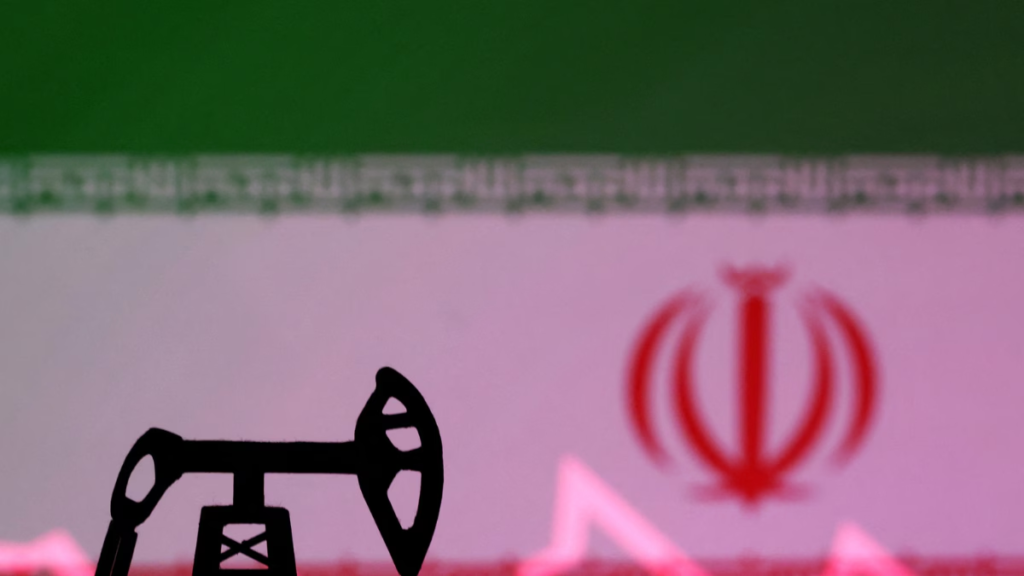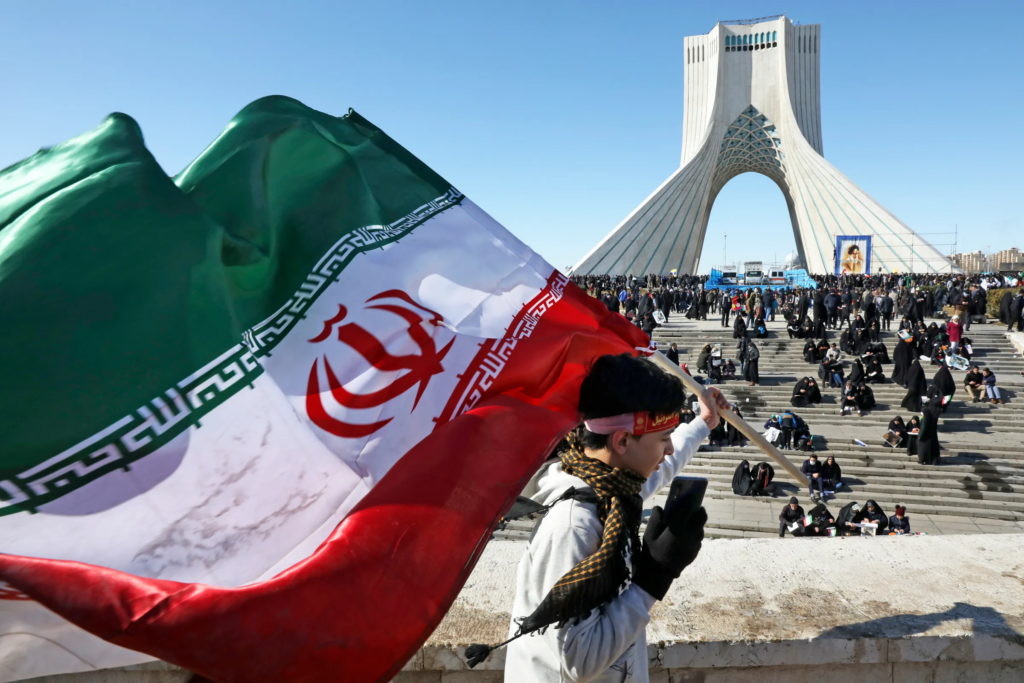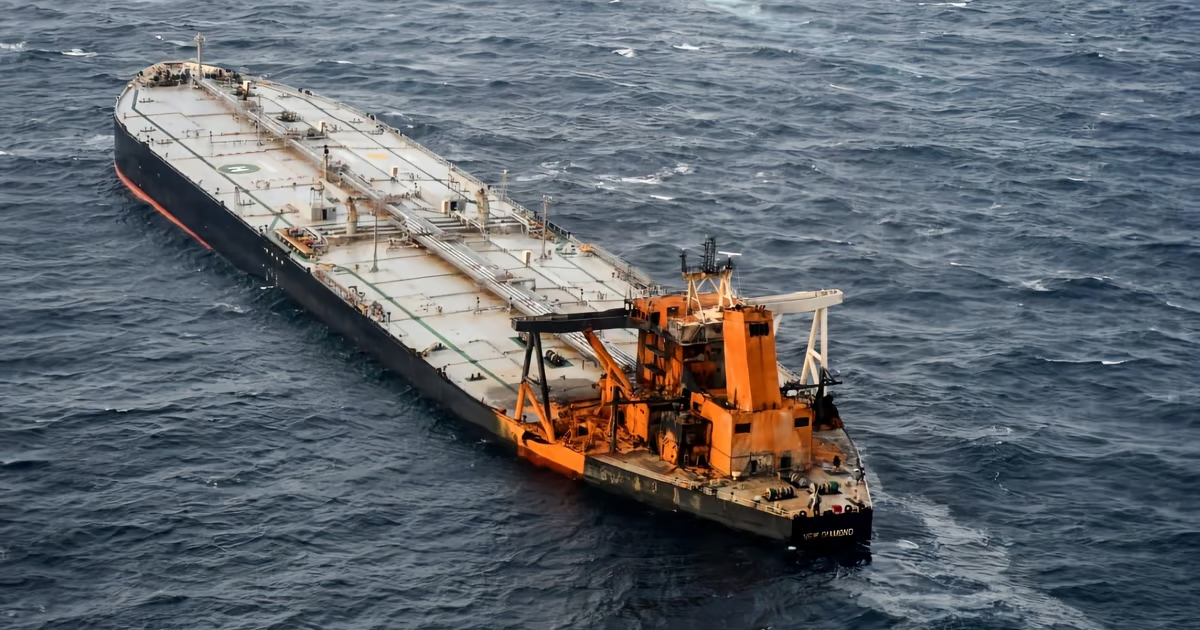In a significant move to counter Iran’s growing influence in the global oil trade, the United Kingdom has joined the United States in imposing sanctions on Iran’s so-called “Ghost Fleet” of oil tankers.
These tankers, which operate clandestinely by turning off their tracking systems and using deceptive methods to evade international sanctions, are vital to Iran’s ability to export petroleum products in defiance of global restrictions.
The sanctions come in the wake of rising tensions in the Middle East, including missile attacks by Iran on Israel, and are aimed at crippling Iran’s ability to fund its missile and nuclear programs.
This move represents a crucial step in the international effort to deny Iran access to the resources it needs to support its military ambitions and its alliances with terrorist groups in the region.
The Strategic Importance of Iran’s Ghost Fleet
Iran’s Ghost Fleet has been instrumental in enabling the country to export oil despite international sanctions. These tankers, often operating under flags of convenience from countries with little regulatory oversight, engage in covert activities to move Iranian oil to buyers in Asia and other regions.
Read : India: Pioneer in Diplomacy, Can Convince Israel for Ceasefire, Says Iranian Envoy
They are known to disable their Automatic Identification Systems (AIS) to avoid detection and use ship-to-ship transfers to disguise the origin of their cargo. The oil is often sold at a discount, making it an attractive option for countries and entities willing to circumvent international laws.
Read : Canada Lists Iran’s Islamic Revolutionary Guard Corps (IRGC) as a Terrorist Organisation
The United States and its allies, including the UK, have long recognized the importance of curbing Iran’s ability to export oil as a means of limiting its funding for missile programs and support for terrorist organizations such as Hezbollah and Hamas.
In recent years, Iran has increasingly relied on its Ghost Fleet to transport oil to China, which has become the largest buyer of Iranian crude. The international community has struggled to enforce sanctions due to the sophisticated methods used by these tankers, but recent technological advancements, including the use of satellite imaging, have made it easier to track these vessels and their activities.

The UK’s decision to impose sanctions on Iran’s Ghost Fleet is part of a broader effort to increase pressure on Tehran and disrupt its ability to generate revenue from oil exports. The sanctions target not only the tankers themselves but also the entities that operate them, as well as individuals and companies involved in the transportation and sale of Iranian oil.
By cutting off access to international markets and financial systems, the UK hopes to weaken Iran’s economy and reduce its capacity to fund its military and nuclear ambitions.
The Impact of Sanctions on Iran’s Oil Exports
The sanctions imposed by the UK, in conjunction with similar measures from the United States, are expected to have a significant impact on Iran’s ability to export oil.
Iran has long relied on its oil exports to generate revenue for its government and military, and the Ghost Fleet has played a crucial role in allowing the country to evade international sanctions. However, with increased scrutiny and enforcement, the effectiveness of these tankers in circumventing sanctions is likely to be reduced.
One of the key challenges in enforcing sanctions on Iran’s Ghost Fleet is the involvement of third-party countries, such as Malaysia, Singapore, and the United Arab Emirates, which have been used as intermediaries in the transportation of Iranian oil.
These countries have been reluctant to support enforcement efforts, particularly due to their economic ties with China, which remains Iran’s largest oil buyer.
The UK and its allies will need to apply diplomatic pressure on these countries to encourage them to cooperate with sanctions enforcement and prevent their ports and facilities from being used for the illegal shipment of Iranian oil.
Additionally, the use of satellite imaging and other advanced technologies has made it more difficult for Iran’s Ghost Fleet to operate undetected. By monitoring tankers that turn off their transponders or engage in suspicious ship-to-ship transfers, the international community can identify and target vessels that are likely involved in the transportation of Iranian oil.
This increased scrutiny is expected to reduce the effectiveness of Iran’s Ghost Fleet and make it more difficult for the country to export oil without detection.
However, enforcing sanctions on Iran’s Ghost Fleet will not be without challenges. Many of the tankers involved in the illicit trade are owned or operated by companies in countries with weak regulatory oversight, making it difficult to hold them accountable.

In some cases, the tankers themselves are registered in countries that are not bound by international sanctions, further complicating enforcement efforts. Nonetheless, the UK’s decision to impose sanctions on these vessels is a significant step toward limiting Iran’s ability to generate revenue from oil exports and funding its military programs.
Broader Implications of the UK’s Sanctions on Iran
The UK’s decision to impose sanctions on Iran’s Ghost Fleet comes at a time of escalating tensions in the Middle East. Iran’s missile attack on Israel, in retaliation for Israeli strikes in Lebanon and Gaza, has further strained relations between Tehran and the West. The attack also comes amid concerns about Iran’s growing influence in the region, particularly through its support for terrorist organizations such as Hezbollah and Hamas.
By targeting Iran’s oil exports, the UK and its allies hope to weaken Tehran’s ability to fund its military and missile programs, as well as its support for terrorist groups. The sanctions are part of a broader strategy to isolate Iran economically and diplomatically, while also deterring other countries from engaging in illicit trade with the country.
The UK’s sanctions, combined with similar measures from the United States and other Western countries, are aimed at cutting off the financial lifelines that allow Iran to pursue its military ambitions and destabilize the region.
The UK’s decision to target Iran’s Ghost Fleet also sends a strong message to other countries that may be considering purchasing Iranian oil. By imposing sanctions on vessels involved in the transportation of Iranian oil, the UK is warning potential buyers that they could face severe penalties if they engage in trade with Iran.
This could discourage countries and companies from purchasing Iranian oil, further limiting the country’s ability to generate revenue from its petroleum exports.
The sanctions also have broader implications for the global oil market. Iran is one of the world’s largest oil producers, and any disruption to its oil exports could have an impact on global supply and prices.
While Iran’s oil exports have already been significantly reduced due to existing sanctions, the UK’s decision to target its Ghost Fleet could further limit the country’s ability to sell oil on the international market.
This could lead to higher oil prices, particularly if other major oil producers, such as Saudi Arabia and Russia, do not increase their production to offset the loss of Iranian supply.
At the same time, the sanctions could also have an impact on the economies of countries that rely on Iranian oil, particularly China, which has become Iran’s largest oil buyer in recent years.

The UK and its allies will need to navigate the delicate balance of enforcing sanctions on Iran while also managing the potential economic fallout from reduced oil supplies. This will likely require close coordination with other major oil-producing countries and international organizations to ensure that the global oil market remains stable.
In conclusion, the UK’s decision to impose sanctions on Iran’s Ghost Fleet of oil tankers is a significant step in the international effort to curb Iran’s ability to export oil and generate revenue for its military and missile programs.
By targeting the vessels that enable Iran to evade international sanctions, the UK is sending a strong message that it is committed to preventing Iran from using its oil exports to fund its destabilizing activities in the Middle East.
While enforcing these sanctions will be challenging, particularly due to the involvement of third-party countries and the sophisticated methods used by Iran’s Ghost Fleet, the UK’s actions represent an important step toward isolating Iran economically and diplomatically.

